Press Room
Media Contact
Sherlyn Rijos
Montner Tech PR
Telephone: 1.203.226.9290
Email: [email protected]
Index
Recent Press Releases
Press Resources: U.S. and Chip Cards
Chip Card Facts-at-a-Glance
Additional Resources
Spokesperson Bio: Director, Jason Bohrer
Coverage Highlights
Graphics & Videos
Recent Press Releases
- US Payments Forum Announces 2024 Steering Committee
- 2024 Identity & Payments Summit Agenda Explores How Industries Intersect Through Unified Identity, AI, Faster Payments, Authentication and More
- US Payments Forum Fall Market Snapshot: The Future of Digital Payments, Biometrics, AI and Mobile Point of Sale
- 2024 Identity & Payments Summit Topic Overview: AI’s Impact on Secure Identity, Faster Payments, Mobile Identity and The Future of Authentication
- US Payments Forum Resource Seeks to Improve EMV Fleet Testing Efficiency
More U.S. Payments Forum Recent Press Releases …
Press Resources: U.S. and Chip Cards
For press use: Please feel free to use this language to accurately report on the U.S. migration to chip cards. Attribution to the U.S. Payments Forum is optional.
- How can I describe the U.S. move to chip cards?
The U.S. is moving to new chip cards based on a global standard called EMV, already in use in billions of payment cards worldwide, to enhance in-person payment security for consumers, merchants and issuers.
- How can I describe the security features of chip cards?
EMV chip cards contain secure computer chips that validate the authenticity of the card and include a one-time use security code in every transaction, making chip payment data virtually impossible to use for counterfeit card fraud.
- How can I describe the drivers for U.S. chip migration?
The U.S. move to EMV chip payments is being driven by the payments industry’s desire to reduce card fraud in a face-to-face card-present environment, provide global interoperability, and enable safer and smarter transactions across contact and contactless channels.
- How can I describe the fraud liability shifts?
“Fraud liability shifts” for card issuers and merchants are meant to help synchronize the timelines to move all industry stakeholders to implement chip technology. As of October 2015, the payment brands shifted the responsibility for certain types of fraud fraud resulting from a payment transaction to the party using the least secure technology. There are different liability shifts for ATMs (October 2016 and October 2017) and automated fuel dispensers (October 2017).
- How can I describe when consumers will start using chip technology?
Many consumers will receive chip cards from their banks this year and will increasingly be able to use them to pay at merchant locations throughout the U.S.
- Is there any terminology I should avoid in reporting on chip cards?
It is not accurate to refer to the U.S. use of chip payment technology as “chip and PIN.” Not all chip cards issued in the U.S. will require the use of a PIN.
Chip Card Facts-at-a-Glance
The basics…
- EMV is the name of the global standard for chip payment cards and is based on widely used and highly secure smart card technology.
- EMV specifications are maintained by EMVCo.
- Chip payment cards are standard-sized bank cards that have a microprocessor, or a mini computer, embedded in the card that meet requirements of the EMV standard.
- Today, the U.S. is in the midst of migrating to chip payments.
- The U.S. market is larger than all of Europe’s payments markets combined, making it the largest individual market to convert to chip cards.
- As of October 2015, the payment brands shifted the responsibility for certain types of fraud resulting from a payment transaction to the party using the least secure technology.
- If neither or both parties are EMV compliant, the fraud liability remains with the issuer.
The numbers…
- According to EMVCo:
- 4.8 billion chip payment cards are in use worldwide as of December 2015
- Between J January and December 2015, 97.29% of card-present transactions in Europe (Zone 1) were chip transactions
- In Canada, Latin America and the Caribbean, 87.9% of in-store transactions were chip transactions between January and December 2015
- Today, more than half of the cards in the U.S. are chip cards, and 1.7 million U.S. POS terminals are enabled to accept them.
Security…
- The embedded microprocessor (computer) in a chip card provides strong transaction security features and other application capabilities not possible with traditional magnetic stripe cards.
- Chip payment technology prevents counterfeit card fraud in two ways:
- The first way is the storage of the cardholder data and security keys inside the chip. Even if chip data were to be copied, it could not be used to create another chip card using the same data.
- The second way is by a one-time, unique code, called a cryptogram, generated by the chip during each payment transaction. The cryptogram proves that the card is authentic and that the transaction data was unique to that card. Therefore, any use of the same unique card data would be detected by the issuer and the transaction denied.
- EMV chip transaction data excludes other data needed for magnetic stripe transactions, so it cannot be used to make a fraudulent transaction in an EMV or magnetic stripe environment.
Additional Resources
- GoChipCard.com
- EMV 101 Webinar
- EMV Brief: Large Scale Payment Data Breaches Highlight Need for U.S. Card Issuers and Retailers to Move More Quickly to Smart Chip Payment Technology
- EMV and U.S. Chip Migration FAQ
- Standardization of Terms
- Near-Term Solutions to Address the Growing Threat of Card-Not-Present Fraud
Spokesperson Bio: Director, Jason Bohrer
Jason Bohrer has served as the Executive Director for the Secure Technology Alliance and the U.S. Payments Forum since December 2020. Prior to joining the Alliance and the Forum, Mr. Bohrer cultivated a successful 27-year career in domestic and global roles focused on sales, operations and product innovation at companies such as: CPI Card Group, HID Global and Motorola, Inc. He has been actively involved with several key technology transitions across multiple industries including the contact and contactless EMV transitions in the U.S. payments industry and the adoption of smart card and mobile technologies in the global access and identity market. He has a Bachelors degree in Economics from the University of Texas at Austin and was also an inaugural member of the University of Chicago Executive Institute.
Coverage Highlights
The U.S. Payments Forum has an active communications program to promote industry messages in business, vertical market, and technology publications. Coverage results from both Forum press releases and interviews with publications writing articles about the Forum. Selected recent coverage can be seen online, http://www.emv-connection.com/us-payments-forum/forum-in-the-news/.
Graphics & Videos
| Resource Description | AVAILABLE FILES | |
|---|---|---|
| Broadcast Quality B-roll |
Online Preview | Half resolution MP4 (960×540) Full resolution MP4 (1920×1080) ProRes 422 LT (1920×1080) ProRes 422 (1920×1080) |
| B-roll Suggested Script | EMV Migration Forum B-roll Script | |
| Chip Card Video |
Online Preview | Download MOV (1920×1080) |
| Chip Card Photo – 1 |
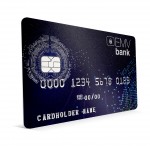 |
Online: 150×150 @ 72 DPI Print: 8″x4.5″ @ 300 DPI |
| Chip Card Photo – 2 |
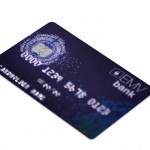 |
Online: 150×150 @ 72 DPI Print: 8″x5.4″ @ 300 DPI |
| Chip Card Photo – 3 |
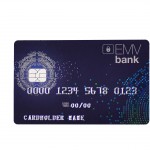 |
Online: 150×150 @ 72 DPI Print: 8″x6″ @ 300 DPI |
| Chip Card Photo – 4 |
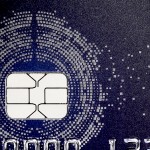 |
Online: 150×150 @ 72 DPI Print: 4″x2.5″ @ 300 DPI |
| Chip Card Photo – 5 |
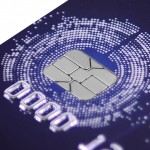 |
Online: 150×150 @ 72 DPI Print: 4″x2″ @ 300 DPI |
| GoChipCard.com Consumer Infographic | 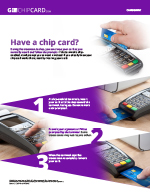 |
Download Printable PDF |
| GoChipCard.com Merchant Infographic | 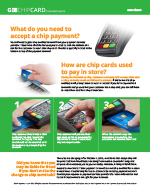 |
Download Printable PDF |
| GoChipCard.com Issuer Infographic | 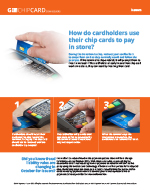 |
Download Printable PDF |
| U.S. Payments Forum Logo |
 |
Online: 320×112 @ 72 DPI Print: 300 DPI EPS |
| How a Chip Transaction Works (infographic) | 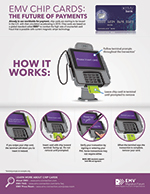 |
Download Printable PDF |
